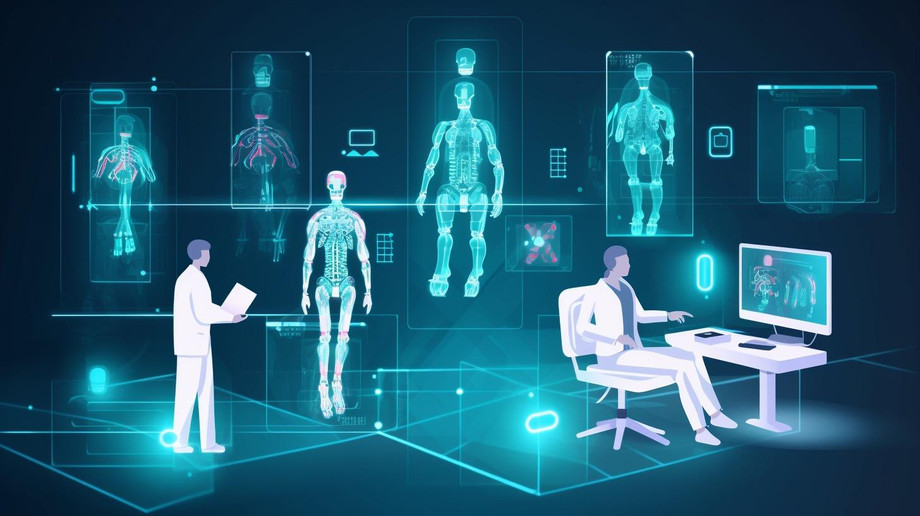In recent years, artificial intelligence (AI) has emerged as a powerful force in transforming various industries, and healthcare is no exception. The integration of AI into medical practices and research has opened up new frontiers, leading to improved patient care, streamlined operations, and breakthroughs in diagnostics and treatment. In this article, we will explore how AI is revolutionizing medicine and shaping the future of healthcare.
Early Disease Detection and Diagnosis
One of the most promising applications of AI in medicine is in the early detection and diagnosis of diseases. AI algorithms, often powered by deep learning and neural networks, can analyze vast amounts of medical data, including medical images, patient records, and genetic information, to identify patterns and anomalies that might escape the human eye.
For example, AI has been used to detect diabetic retinopathy from retinal images, identify cancerous lesions in medical images like X-rays and MRIs, and even predict the onset of diseases like Alzheimer's based on brain scans and genetic markers. These AI-driven diagnostic tools can enable earlier intervention, leading to improved outcomes and reduced healthcare costs.
Personalized Treatment Plans
AI is revolutionizing how medical professionals develop personalized treatment plans for patients. By analyzing a patient's medical history, genetic information, and real-time health data, AI systems can provide healthcare providers with valuable insights into the most effective treatment options. This approach, known as precision medicine, ensures that treatments are tailored to individual patients, increasing their chances of success and reducing adverse effects.
Drug Discovery and Development
The drug discovery process is notoriously time-consuming and expensive. However, AI is accelerating drug development by analyzing vast datasets of biological information and predicting potential drug candidates. AI algorithms can also help identify patient populations that are most likely to respond positively to a specific medication, enabling pharmaceutical companies to design more efficient clinical trials.
Virtual Health Assistants
AI-powered virtual health assistants are becoming increasingly common in healthcare. These virtual assistants can provide patients with information, schedule appointments, offer medication reminders, and even provide personalized health advice based on a patient's medical history and real-time health data. They improve patient engagement and help healthcare providers deliver more efficient and accessible care.
Predictive Analytics for Hospital Operations
Hospitals and healthcare systems are using AI-driven predictive analytics to optimize their operations. These algorithms can forecast patient admission rates, help with resource allocation, predict disease outbreaks, and improve patient flow within the hospital. By doing so, they enhance the overall efficiency and cost-effectiveness of healthcare delivery.
Natural Language Processing (NLP) for Medical Records
Natural language processing, a subfield of AI, is being applied to the analysis of medical records. NLP algorithms can extract valuable insights from unstructured clinical notes, making it easier for healthcare providers to identify trends, track patient progress, and make data-driven decisions. This technology not only saves time but also enhances the quality of care by ensuring that important information is not overlooked.
Remote Monitoring and Telemedicine
AI plays a crucial role in remote monitoring and telemedicine. Wearable devices equipped with AI can continuously monitor a patient's vital signs, detect abnormalities, and alert healthcare providers in real-time. This allows for early intervention and reduces the need for frequent in-person visits, especially for patients with chronic conditions.
Ethical and Regulatory Considerations
While AI holds great promise for medicine, it also raises ethical and regulatory challenges. Patient privacy, data security, and the responsible use of AI algorithms are critical concerns. Ensuring that AI systems are transparent, unbiased, and accountable is essential for their safe and effective integration into healthcare.
For More Info:-
Applications Of Ai In Medicine
Application Of Ai In Health Care
Artificial Intelligence disease outcome prediction




.png)

Comments